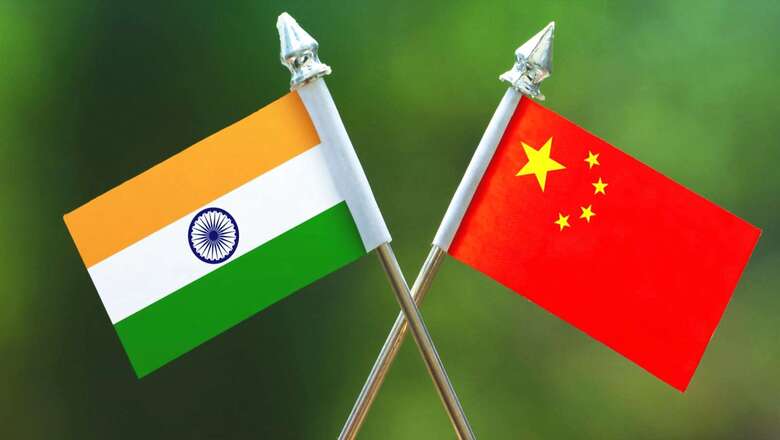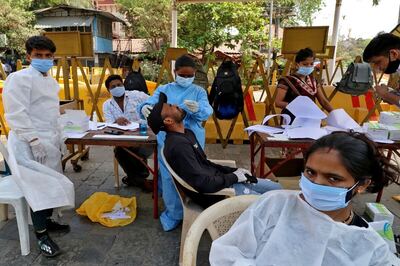
views
Curious signs started appearing in late August. Chinese foreign minister Wang Yi made a surprise, unscheduled visit to India in March, when the blood on the snow from the Ladakh skirmishes had not seeped away, at least metaphorically.
Soon after, Indian foreign minister S Jaishankar made his now famous ‘Asian century’ remark. He said an Asian century can’t happen if India and China don’t join hands and that the two had far more common interests than differences.
The Chinese nodded in agreement.
“China and India are two ancient civilisations, two major emerging economies and two neighbouring countries, we have far more common interests than differences. Both sides have the wisdom and capability to help each other succeed instead of undercutting each other,” said Chinese foreign ministry spokesperson Wang Wenbin.
Soon, Indian and Chinese troops were participating alongside each other at the Vostok 2022 military drills hosted by Russia.
Over Ukraine, India refused to censure Russia on the world stage, knowing well China was firmly on Russia’s corner.
September brought in troop disengagement in Ladakh across at least five points including the Gogra-Hot Springs, Galwan Valley, north and south of Pangong Lake, and at PP17A.
Then, official Chinese handles took a surprisingly understanding and conciliatory tone. Spokesman and deputy director-general, Information Department, China’s Foreign Ministry, Lijian Zhao taunted Bloomberg when India overtook Britain in size of economy.
Stop describing the world from the perspective of colonists. pic.twitter.com/WbRoNi2DBK— Lijian Zhao 赵立坚 (@zlj517) September 20, 2022
On Thursday, India abstained from voting against China at the United Nations on a proposed debate on human rights abuses against Xinjiang’s Uighur Muslims.
For two nations whose soldiers were tearing each other apart with bare hands just a few months ago, this chain of events is both welcome and baffling.
Why are India and China, at least in terms of optics, on a reconciliatory road? What is at play? What could be the motivation for two of the world’s biggest resurgent powers to keep hostilities on hold?
Let us examine some plausible reasons.
First, China has got increasingly isolated globally because of its repugnant expansionism and being widely seen as the source of the Covid pandemic. The US is breathing down over Taiwan. It does not want a hostile India, an entrenched member of the Quad with military superiority in the Himalayan theatre. At least for now.
Second, experts are cautioning that another massive global slowdown could be around the corner. The Chinese economy is struggling. In spite of brutal cover-ups, Covid refuses to leave it. India itself is trying to rebuild its economy after two lost years of pandemic. China is currently India’s biggest trade partner surpassing the US (although a widening deficit favours China) and fourth largest export destination. Both sides do not want to fritter that away in the face of a looming slowdown. Both have staggering economic interests to protect.
Third, India would get nothing by voting against China on Xinjiang, except for sanctimonious brownie points at the toothless UN. It stands to lose a lot more.
Powerful networks opening from the West have been relentlessly targeting India since Narendra Modi came to power in 2014 and presided over a resurgent nation. The new, assertive Hinduness which repels Islamist barbarism, missionary guile, and Maoist violence vocally and openly has particularly come under attack.
India knows what it means to have vested interests meddle in internal affairs. By attacking China there, it would have opened its own gate a little wider.
China has an objective interest in seeing India fall apart, yet it is not attacking Hinduism. The US has an objective interest in seeing India strong, viz. as a counterweight to China (& to global terror which it claims to be fighting), yet is hosts all kinds of Hindu-bashing. https://t.co/3R2uH1Or1K— Koenraad Elst (@Koenraad_Elst) October 6, 2022
Fourth, the US under Joe Biden has been mercurial and unreliable. It deserted Afghanistan, leaving the Taliban to guard the chickens, and a very long leash in ISI’s hand. This has emboldened anti-India Islamist groups from AfPak to Bangladesh.
The US and its Western allies like the UK, Canada, and Germany have also let all kinds of anti-India terror groups and politicians a free run. Western media has been carrying out a vicious campaign against the Modi government, giving unrestricted and one-sided space to known India-haters and Hinduphobes.
The West has done its best to make itself difficult for India to trust.
Fifth and finally, the Modi government understands the need to have China and the Islamic world on its side not just for a permanent seat in the UN Security Council, but in case it goes for decisive action across the border, for instance. A weakened, perennially begging Pakistan does not offer the Arabs or the Chinese much reason to care. India, however, could do with these not-so-natural allies looking the other way.
Geopolitics often works in strange and mad ways. But there is usually always a method.
Abhijit Majumder is a senior journalist. The views expressed in this article are those of the author and do not represent the stand of this publication.
Read all the Latest Opinion News and Breaking News here




















Comments
0 comment